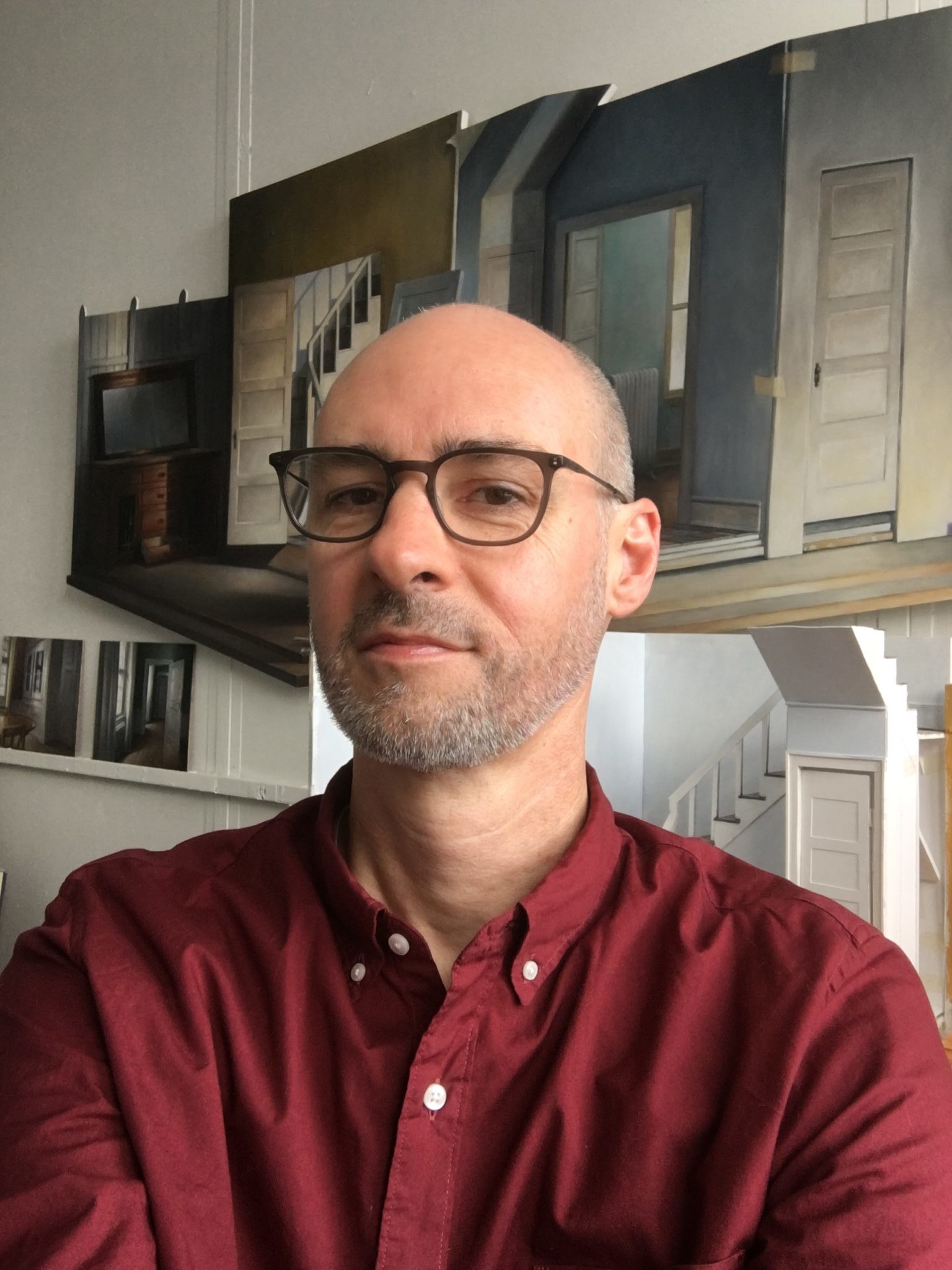Michael Banning

Michael Banning
mbanning@mcad.edu
https://www.michaelbanning.com
he/him/his
BIO
Michael Banning was born in Boulder, Colorado in 1966. He received his BFA from the University of Colorado, Boulder and his MFA from Minneapolis College of Art and Design. Banning’s oil paintings and drawings of contemporary American urban, industrial, and domestic landscapes have been exhibited in solo exhibitions in Chicago, Denver, Minneapolis, and New York City. His work was most recently exhibited in a solo exhibition at the Edward Hopper House museum and study center in Nyack, NY, in 2019.
Banning’s work has also been included in regional group exhibitions at several Midwestern institutions, including Chicago’s Harold Washington Library, the Minnesota Marine Art Museum, the Rockford Art Museum, the Kohler Art Center, the South Bend Regional Museum of Art, Fort Wayne Museum of Art, and Manifest Creative Research Gallery in Cincinnati, among others.
Banning is the recipient of multiple grants from the Minnesota State Arts Board, the Jerome Foundation, and the City of Chicago, where he lived for seven years. Banning and his wife, artist Melanie Pankau, live in Minneapolis where he teaches at the Minneapolis College of Art & Design. He recently served as the full-time Visiting Faculty member in MCAD’s MFA program (2018 – 20)
TEACHING PHILOSOPHY & MENTORSHIP
Mentorship is a multi-faceted endeavor. A good mentor can be a guide, a sounding board, a challenger, and an advocate – all on the same day. As a graduate mentor I try to: help students identify their interests, strengths, and weaknesses; challenge them to try new directions and refine current ones; guide them to see the connections and themes in their work that may be under the surface; and counsel them as they navigate academic and professional contexts and timetables. I also think it’s important to keep in mind the relationship between graduate studies and a student’s larger goals after graduation so that their graduate experience can be individually molded to serve them best. Finally, It’s important to stress that the graduate studio experience is a self-directed one and the student is the one who determines the objectives of their studies – the mentor is there to help them achieve this.


